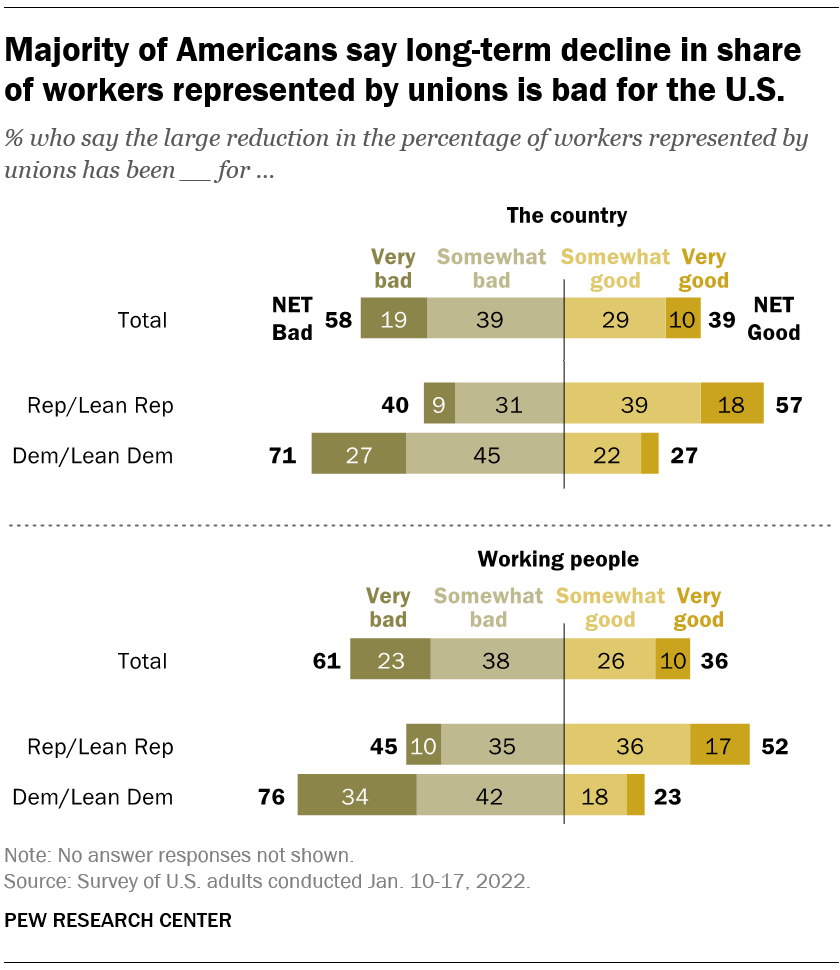Jane Avery
Boston University News Service
Do you get your morning coffee at Starbucks? Did you buy your groceries from Trader Joes? Workers all across the country are working to unionize these locations and more. I took a deeper dive into what has shaped the current boom in unionization efforts and workers who are looking back to the past for inspiration.
A poll done by the PEW Research Center shows that citizens across political parties believe that decline in unions is bad for the working people in the U.S.

At Starbucks, employees get paid $15 an hour and work in conditions that they aren’t happy about. Many of them have had enough. Some workers want a union to help them get better working conditions.
Professor Michael Carr is at University of Massachusetts Boston and says Americans have gone from strongly supporting unions, to backing away from them over the past few decades.
“You would think people would say ‘well union members get that so I should get it.’ Instead the response in the U.S. has been I don’t get this so why should union people get it’ and this has helped, i think, to undermine the role of unions,” Carr said.
Now Carr says, that opposition to unions is changing.
“I think what you’re seeing now, both in terms of these sporadic but widespread unionization campaigns and also what people are calling The Great Resignation, this sudden spike in quits, is people suddenly recognizing that they’ve ceded all the power in their employment relationship to their employer,” Carr said.
Kylah Clay, a Starbucks barista co-leading the Starbucks unionization efforts in Boston, is a worker who wants to take that power back. She says times are changing…and we need to learn from the past.
“I’ve noticed a gap in that a lot of the people we’re meeting are either in a younger generation or in a much older generation that are coming from that 70s, 80s…the pushes from a while back,” Clay said. “It’s so important to be learning from these people and taking on what they laid out and learning from that foundation and adopting it to the 21st century.
“If there wasn’t this generation that’s reviving it and working with them, I don’t know if those amazing pieces of advice that they’ve provided us would be able to survive past that.”








